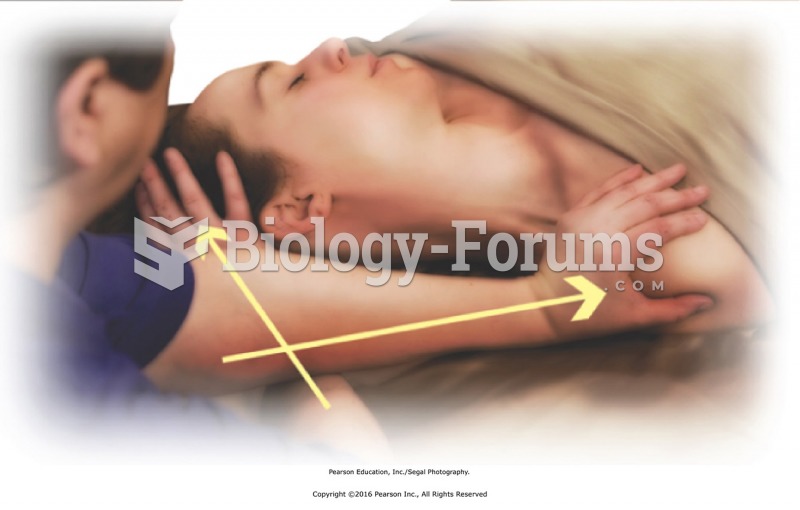This topic contains a solution. Click here to go to the answer
|
|
|
Did you know?
In inpatient settings, adverse drug events account for an estimated one in three of all hospital adverse events. They affect approximately 2 million hospital stays every year, and prolong hospital stays by between one and five days.
Did you know?
The term bacteria was devised in the 19th century by German biologist Ferdinand Cohn. He based it on the Greek word "bakterion" meaning a small rod or staff. Cohn is considered to be the father of modern bacteriology.
Did you know?
Thyroid conditions may make getting pregnant impossible.
Did you know?
A seasonal flu vaccine is the best way to reduce the chances you will get seasonal influenza and spread it to others.
Did you know?
The average human gut is home to perhaps 500 to 1,000 different species of bacteria.
 The Black Death spread over much of Europe in a three-year period in the middle of the fourteenth ce
The Black Death spread over much of Europe in a three-year period in the middle of the fourteenth ce
 Apply deep circular effleurage to the buttocks muscles as a warming technique. Place one hand on top ...
Apply deep circular effleurage to the buttocks muscles as a warming technique. Place one hand on top ...
 Stretch the cervical muscles with neck in lateral flexion. Place one hand on the shoulder and the ...
Stretch the cervical muscles with neck in lateral flexion. Place one hand on the shoulder and the ...




